Hundreds honour National Day for Truth and Reconciliation at UBC
Elders, First Nations people say it's more important than ever to remember the traumas at residential schools
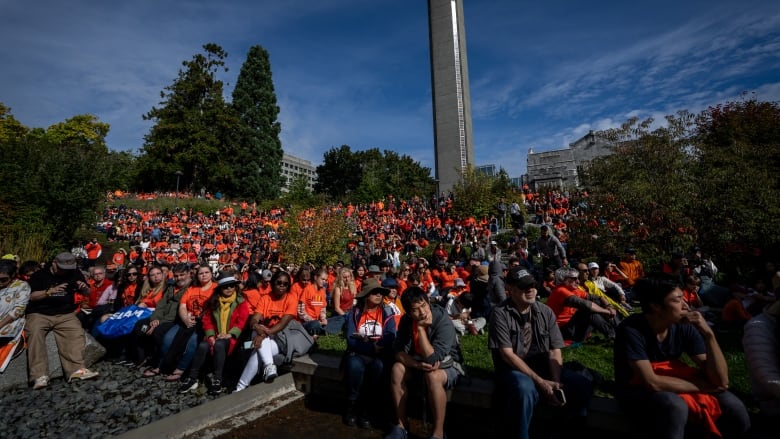
A sombre event at the University of British Columbia's Vancouver campus on Monday saw hundreds attend to honour the National Day of Truth and Reconciliation.
In what was the fourth official commemoration of the dayestablished by the Canadian governmentin 2021 to honour survivors and those who never returned home from the country's residential schoolsa sea of people wearing orange shirts listened to elders and others speak about the impact of colonialism on their lives.
It was the second time that Sept. 30 had been marked as astatutory holiday in B.C., and First Nations people in attendance said there has been an increasing awareness of the intergenerational trauma inflicted by residential schools.
The church-run institutions saw Indigenous children stripped of their cultures and identities, suffering mental and physical abuse in the process. The last federally funded residential school closed in 1996.
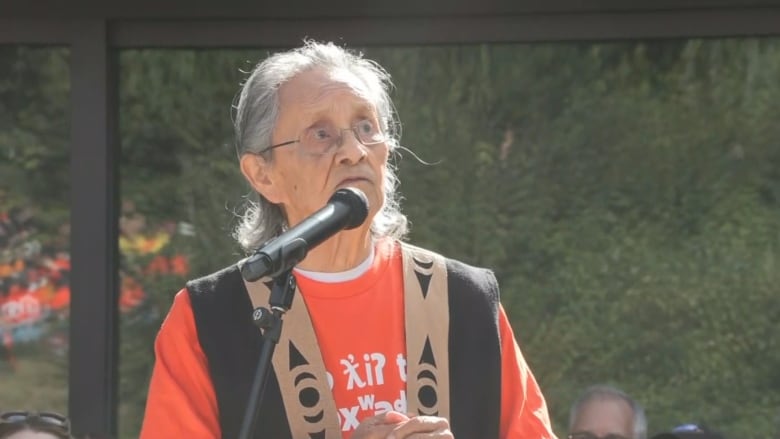
First Nations people at the UBC event, which took place in front of theIndian Residential School History and Dialogue Centre, spoke about the impactof the schools, and how politicians and institutions needed to step up to address the ongoing effects of colonization.
"Hopefully this institution ... the board of governors take steps to adjust the policies that have created the systemic racism that is prominent here in all the institutions in British Columbia," MusqueamFirst Nation elder Larry Grant told the gathering, referring to the UBC administration.
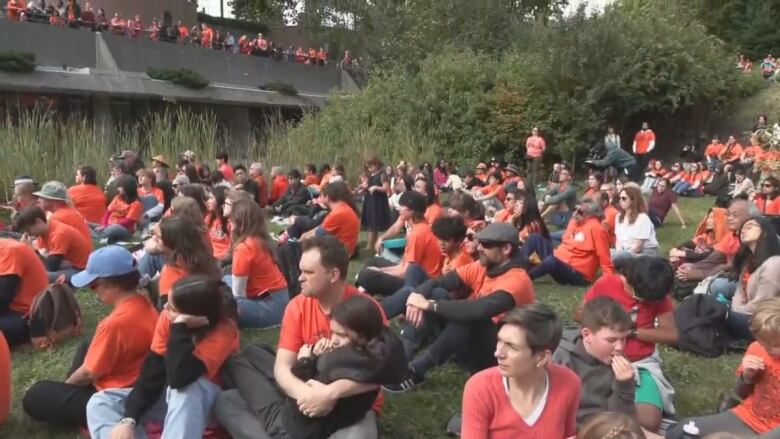
Grant said his cousins and relatives would go through their lives believing they were not good for anything due to the discrimination they suffered at residential schools.
He urged political leaders, including B.C. NDP Leader David Eby,who was in attendance, to ensure legislation like theDeclaration on the Rights of Indigenous Peoples Act (DRIPA) which was introduced by the NDP government and passed into law in 2019 would be implemented properly.
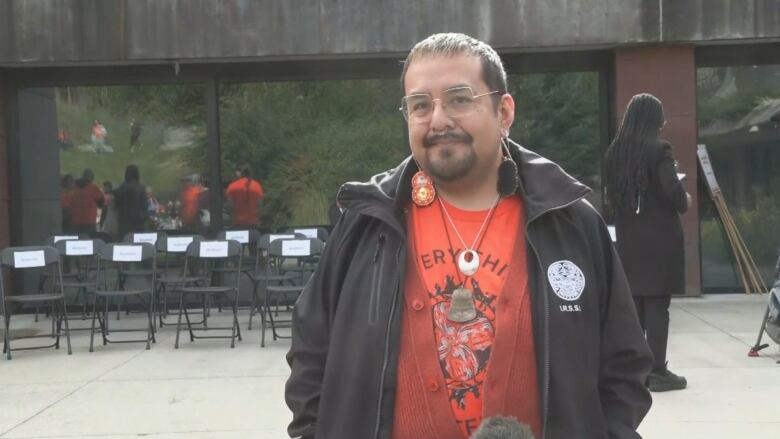
Jeremy Jonesof theNanoose First Nations, who is manager of community engagement with theIndian Residential School Survivor Society, said the day revolved around how best to centre the experience of residential school survivors.
In response to a question about whether the statutory holiday had accelerated the process of intergenerational healing, Jones said it had changed its trajectory.
"I think it's still at the speed that it needs to be, but it's also bringing in the idea that we as Canada, wherever we're at, are all a part of this," he told CBC News.
"Our ways of knowing and our ways of being are being honoured in a way that historically hasn't happened up until my recent times."
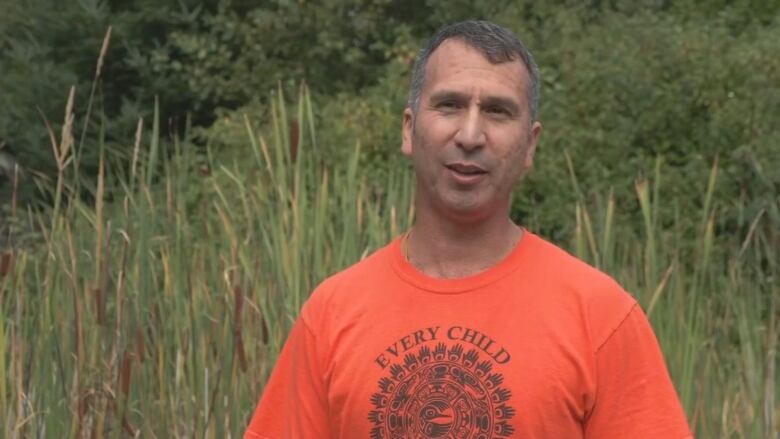
Danilo Caron, who was born in Kamloops, B.C., and traces his roots to the Sagamok Anishnawbek First Nation in Ontario, said events like Monday's were seeing growing participation in the four years since an official Truth and Reconciliation Day was declared by the federal government.
"[It] represents a community coming together to show not only solidarity, but a willingness to be uncomfortable in the learning journey of our shared history," he said.
"Not only about Indian residential schools, but around the ongoing impacts of settler colonialism."
Caron said it was exciting to be able to educate people about First Naitions culture and history, and said that reconciliation should not be confined to a single day in the whole year but should be an ongoing process throughout.












_(720p).jpg)


 OFFICIAL HD MUSIC VIDEO.jpg)
.jpg)



























































































